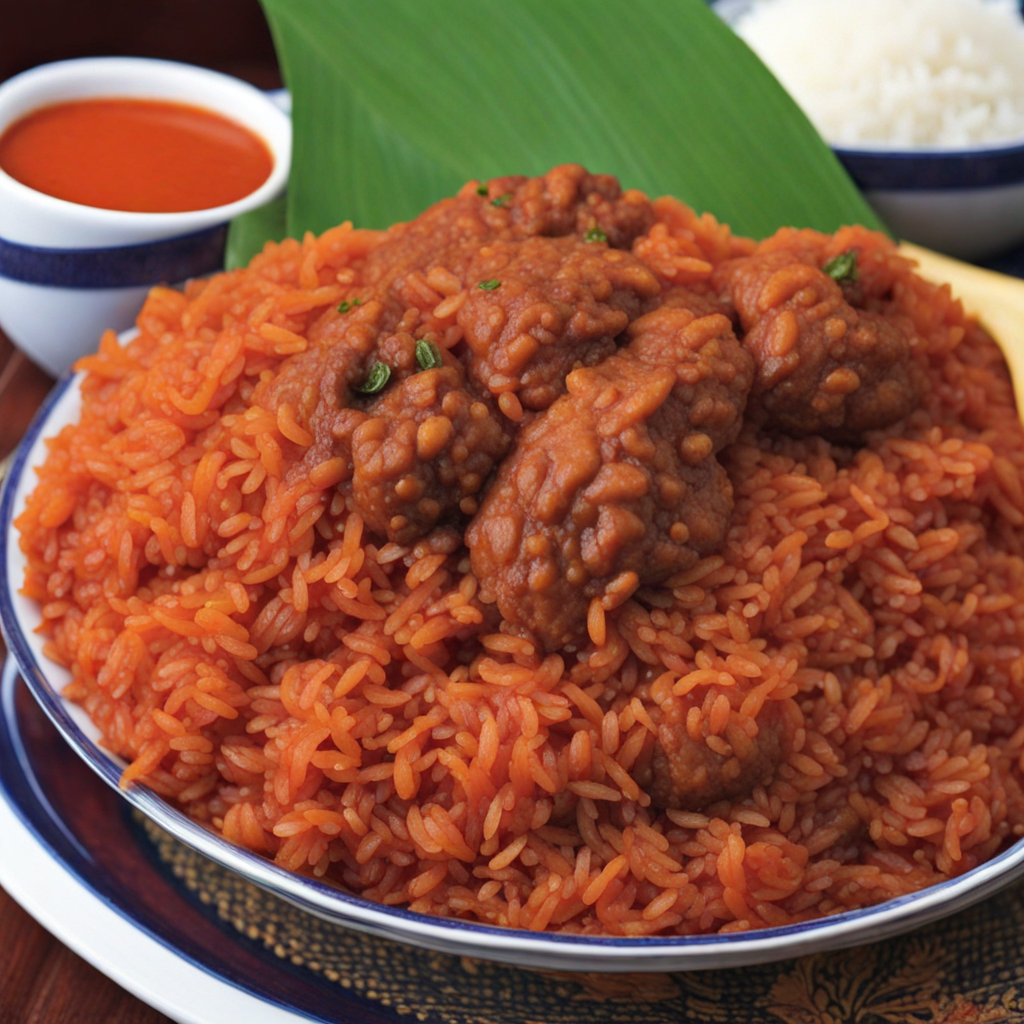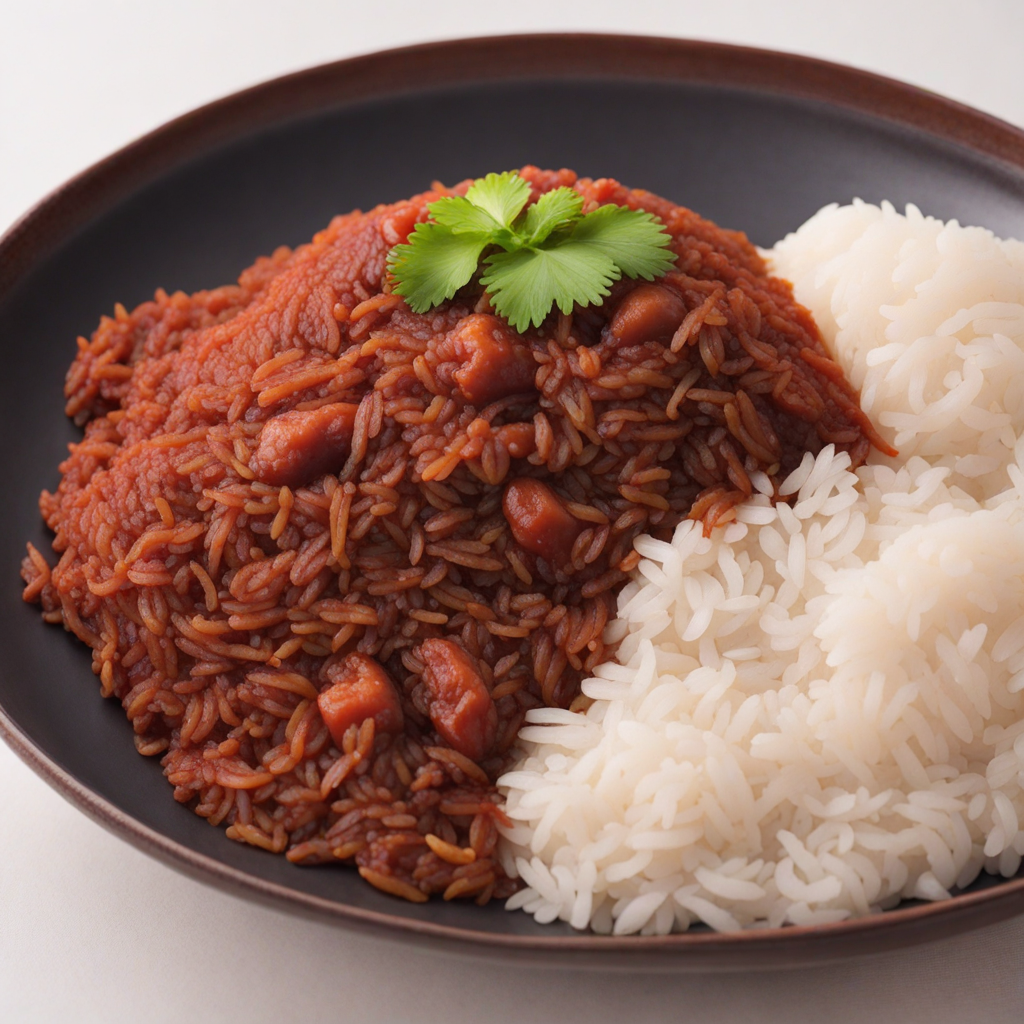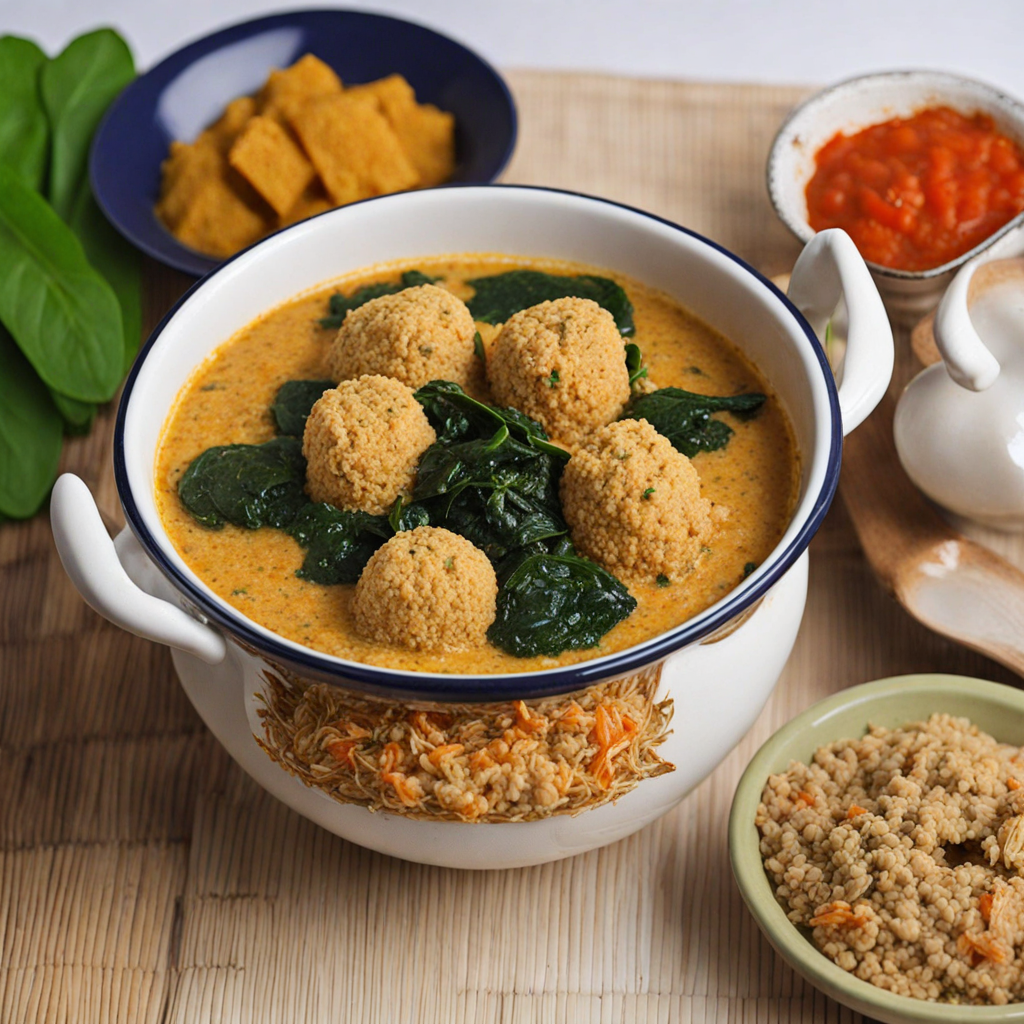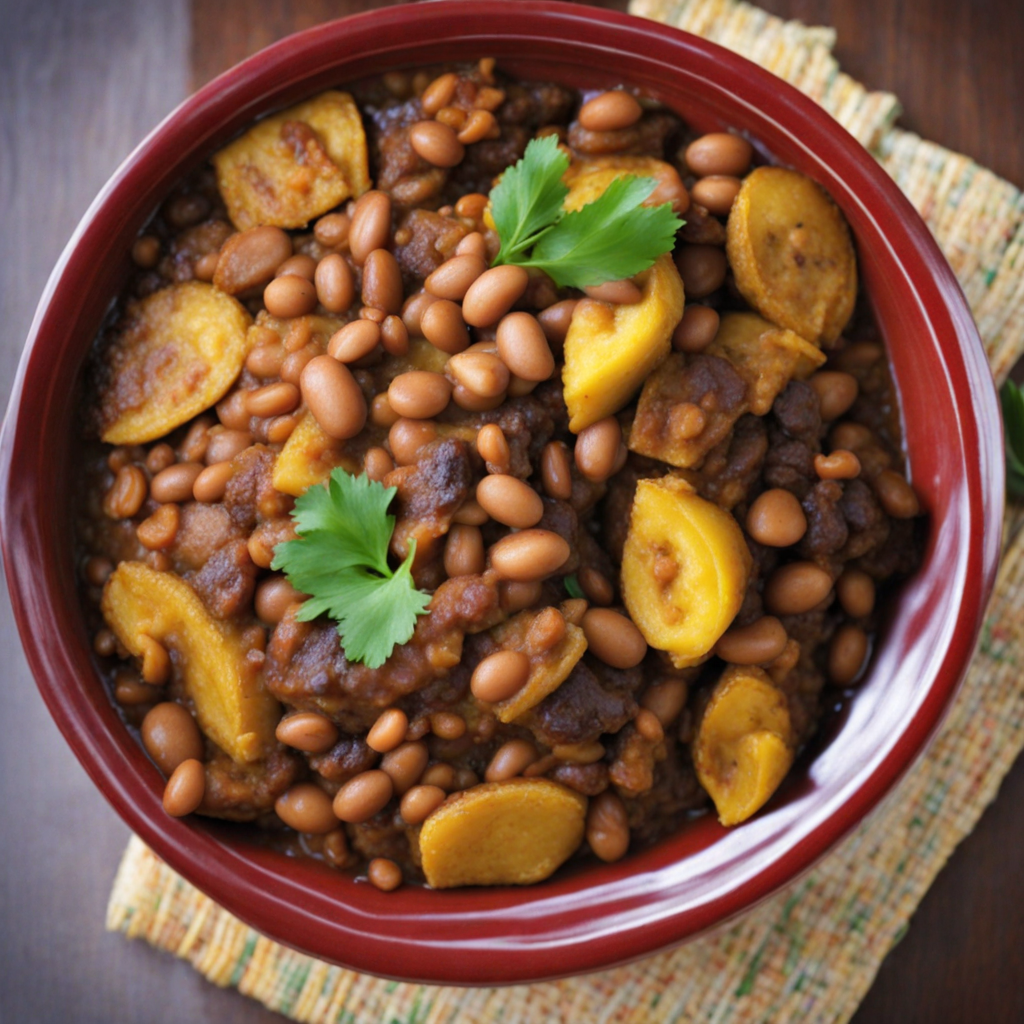Ofada Rice
Ofada Rice, also known as 'Iyan' or 'Unripe Rice,' is a traditional Nigerian staple that hails from the southwestern region of the country. This unique rice variety is distinguished by its distinct aroma and slightly sticky texture when cooked. The grains are short, round, and often have a mottled brown color, which is a result of minimal processing that retains the outer husk. When cooked, Ofada Rice has a nutty flavor profile that sets it apart from the more commonly known basmati or jasmine rice, making it a delightful culinary experience for those seeking something new and exciting. Typically, Ofada Rice is served with a rich and spicy sauce known as 'Ofada Sauce' or 'Ayamase.' This sauce is usually made from blended green bell peppers, Scotch bonnets, onions, and a variety of proteins such as goat meat, beef, or fish. The combination of the rice and the sauce creates a harmonious balance of flavors, with the spicy heat of the sauce complementing the mild nuttiness of the rice. The dish is often accompanied by assorted meats and garnished with locust beans, which add a unique umami flavor that elevates the overall taste. The experience of enjoying Ofada Rice is not just about the flavors; it's also about the cultural significance behind it. Traditionally served during special occasions, weddings, and family gatherings, this dish embodies the spirit of Nigerian hospitality and communal dining. As you dive into a plate of Ofada Rice, you are not just tasting a meal but also partaking in a rich culinary heritage that celebrates the diverse flavors and ingredients of Nigeria. For anyone looking to explore new gastronomic horizons, Ofada Rice offers a delicious and authentic taste of Nigerian cuisine.
How It Became This Dish
The History of Ofada Rice: A Culinary Jewel of Nigeria Ofada rice, a fragrant and uniquely textured variety of rice indigenous to Nigeria, is more than just a staple food; it is a culinary symbol deeply embedded in the cultural fabric of the Yoruba people and, indeed, the entire nation. Its history is a rich tapestry woven from the threads of agricultural innovation, regional pride, and cultural heritage. #### Origins of Ofada Rice The exact origins of Ofada rice can be traced back to the lush agricultural lands of southwestern Nigeria, particularly the towns of Ofada and Eruwa in Ogun State. This rice variety is known locally as "Iyan" or "Ofada rice," and it is distinguished from other rice types by its distinct aroma and flavor, characterized by a slightly nutty taste and a chewy texture. Unlike most commercially cultivated rice varieties, Ofada rice is typically grown in small, family-run farms, often in swampy areas that are rich in nutrients. Historically, Ofada rice was cultivated primarily by the Yoruba people, who valued it not only for its sustenance but also for its connection to their heritage. Its cultivation aligns with the agricultural practices of the Yoruba, which emphasize the importance of local produce. The rice is often planted in the wet season, and traditional methods of farming are employed, reflecting a deep respect for the environment and the land. #### Cultural Significance Ofada rice holds a special place in Yoruba culture and Nigerian cuisine at large. It is often associated with traditional ceremonies, festive occasions, and family gatherings. The rice is frequently served with "Ayamase," a rich and spicy green pepper sauce made from green bell peppers, locust beans, and assorted meats, creating a dish known as "Ofada rice and Ayamase." This combination is not merely a meal; it is a culinary experience that evokes memories of home, family, and tradition. In Yoruba culture, food is more than just nourishment; it is a means of connecting with one’s roots and community. The ritual of preparing and sharing Ofada rice signifies hospitality and unity. It is customary for families to prepare large quantities during celebrations such as weddings, birthdays, and religious festivities, thereby reinforcing social bonds and cultural identity. Moreover, Ofada rice has become a point of pride for the Yoruba people, symbolizing their agricultural heritage and culinary artistry. The rice is often regarded as a "luxury" food, not only for its unique flavor but also for its association with traditional farming practices, which contrast sharply with the mass-produced rice varieties that dominate the market. #### Development Over Time As Nigeria's population grew and urbanization accelerated, Ofada rice began to face challenges. In the late 20th century, the introduction of hybrid rice varieties led to a decline in traditional farming practices. Many farmers shifted to cultivating more commercially viable crops due to the perceived ease of growing and selling these hybrid varieties. This shift posed a significant threat to the sustainability of Ofada rice cultivation, leading to concerns about the preservation of local agricultural practices and the cultural identity tied to them. However, the early 21st century saw a resurgence of interest in Ofada rice, spurred by a growing movement towards organic and locally sourced foods. As awareness of the nutritional benefits of traditional foods increased, more consumers began to seek out Ofada rice for its health advantages, including its lower glycemic index compared to white rice. In response to this renewed interest, various initiatives have emerged to support Ofada rice farmers. NGOs and government programs began to promote sustainable agricultural practices and provide training to local farmers, ensuring the preservation of traditional rice-growing techniques. These efforts have not only helped to revitalize the Ofada rice industry but have also empowered local communities by providing them with a source of income and a means of preserving their cultural heritage. The rise of social media and food blogs has played a pivotal role in elevating the profile of Ofada rice beyond Nigeria's borders. Food enthusiasts and chefs have embraced this unique rice variety, showcasing it in innovative recipes and helping to popularize it among a global audience. Cooking shows, food festivals, and culinary competitions have further highlighted Ofada rice as a culinary gem, leading to an increased appreciation for Nigerian cuisine on the international stage. #### Challenges and Future Prospects Despite its resurgence, Ofada rice still faces challenges. The competition from cheaper, imported rice remains a significant hurdle, as many consumers opt for convenience over tradition. Additionally, the impacts of climate change pose risks to traditional agricultural practices, necessitating further adaptation and innovation among farmers. However, the future of Ofada rice looks promising. With the growing global interest in sustainable farming and local food systems, there is an opportunity for Ofada rice to not only reclaim its place in Nigerian households but also to find a niche in the international market. Initiatives aimed at branding Ofada rice, emphasizing its unique characteristics and cultural significance, could help differentiate it from other rice varieties. In recent years, the Nigerian government has also recognized the importance of promoting indigenous crops like Ofada rice as part of broader agricultural policies aimed at food security and economic development. By supporting local farmers and investing in agricultural research, the potential for Ofada rice to thrive in both local and international markets is significant. #### Conclusion Ofada rice is more than just a variety of rice; it is a symbol of cultural identity, agricultural heritage, and culinary excellence in Nigeria. Its journey from traditional farming practices to modern culinary acclaim highlights the resilience of local food systems and the importance of preserving cultural heritage. As the world becomes increasingly aware of the value of indigenous foods, Ofada rice stands poised to take its place as a cherished dish not only in Nigeria but also in the global culinary landscape. The future of Ofada rice is bright, as it continues to nourish both the body and the soul, connecting generations through the timeless act of sharing a meal.
You may like
Discover local flavors from Nigeria







